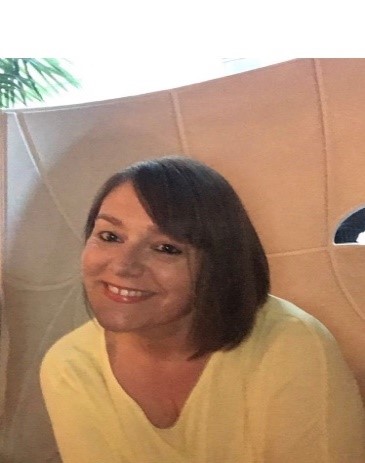A Teesside medical secretary has transformed her personal struggles into a source of inspiration and support for others facing similar challenges.
Rachel Brown, who works for our Trust, faced a double family tragedy when her mum developed cancer, and her son was diagnosed with life-changing epilepsy.
But she is now using her lived experience to advocate for better support for other families who find themselves struggling with health and care issues.

“At one point I thought I might need to leave my job to look after my son, but my managers have been brilliant. I’ve been lucky to have such great support,” she said.
“Sadly, there isn’t such good support in the outside world. There are no local epilepsy support groups, and I haven’t really found much help for carers like me either.”
Devastating news
Rachel, 52, was working at North Tees Hospital when her mum, Maureen, was diagnosed with terminal cancer in May 2021.
“She became poorly during Covid, which made it hard to see a doctor. She kept being sick and lost a lot of weight and was given anti-nausea drugs,” said Rachel.
“When she was finally diagnosed, she was told she needed chemotherapy. She went for her first treatment on the Friday, and my son Luke had his first seizure a day later.
“Luke and my mum had always been very close, which makes me wonder if the stress of her illness might have triggered his epilepsy. I guess we’ll never know.”
Rachel’s mum battled cancer for just over a year. She managed to celebrate Luke’s 18th birthday, but her tumour was inoperable, and she sadly died in June 2022.
Luke remained seizure-free for most of the time his grandmother was ill but, in March 2022 he suffered another – and was officially diagnosed with epilepsy.
“We had hoped that his first seizure was just a one-off. There’s no history of epilepsy in the family, so it came out of the blue,” said Rachel.
“I’ll never forget that first seizure. I heard a bang in the middle of the night and found Luke had fallen out of bed and knocked himself unconscious. It was such a shock.”
Carers need care too
Despite his epilepsy diagnosis, Luke managed to finish his A Levels and gained a place at Teesside University to study business management.
After a year he switched to civil engineering but, just four weeks into the course, he had a seizure while travelling to his classes – which turned his life upside down.
“That was the start of him being really ill. Luke used to play football, go out drinking with his mates, and loved going to uni. He was typical teenager,” said Rachel.
“He went from doing what he wanted, to having everything taken away from him. At one point he was bed-bound for eight months, as his seizures were so bad.”
By this time Rachel, from Hartlepool, had joined our Trust and she divided her time between work and caring for her son – monitoring his seizures via cameras.
For several months he had three or four seizures a day but, since having a vagus nerve stimulation device fitted earlier this year, his condition has started to improve.
The device sends small pulses of electrical energy to the major nerve which runs from the brain, and helps to reduce the number, severity and duration of seizures.
“When Luke became ill, I needed to take time off to take him to appointments. I was worried I might lose my job, as I was still in my probation period,” said Rachel.
“But the people I worked with then, and now, have been brilliant, so understanding. They have supported me to be able to care for Luke and to do my best at work too.
“Outside of work, there’s nothing really. As a carer you often feel like nobody cares about you. You are on your own. So, the support I get at work keeps me going.”
Support needed for carers
Rachel is registered as an unpaid carer at our Trust, which means she benefits from on-going support, and she also finds comfort from our working carers group.
“Things are ten times better than they were a year ago,” said Rachel. “During the toughest times I felt like coming to work was a bit of an escape from everything.
“Luke’s illness has been a lot to adjust to. He went from being a sporty, fun-loving teenager to having no life at all. It’s amazing that he is now getting back on his feet.
“His condition is life-changing but manageable. You can’t cure it – but you can live with it. He’ll be on medication forever, but at least he’s still here, still alive.”
Looking after Luke has made Rachel much more aware of the dedication and devotion of other carers – who often go unrecognised for their hard work each day.
Rachel, who works in our north adult learning disabilities team, would love to see more done to support unpaid carers and added:
“I know there are people in far worse situations to me, but outside of work it feels like nobody really cares. I’d love to see real support put in place for unpaid carers.”
- Advice on accessing support for carers is available on our website . The carers hub web pages have been co-created for and by unpaid carers.